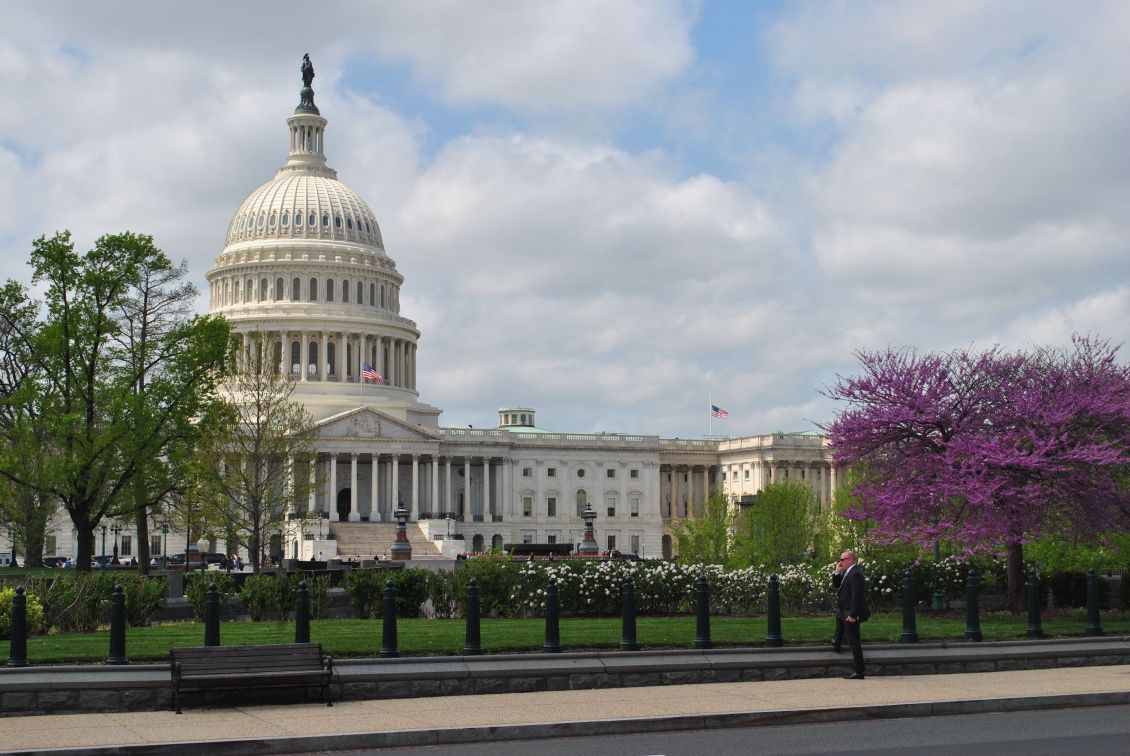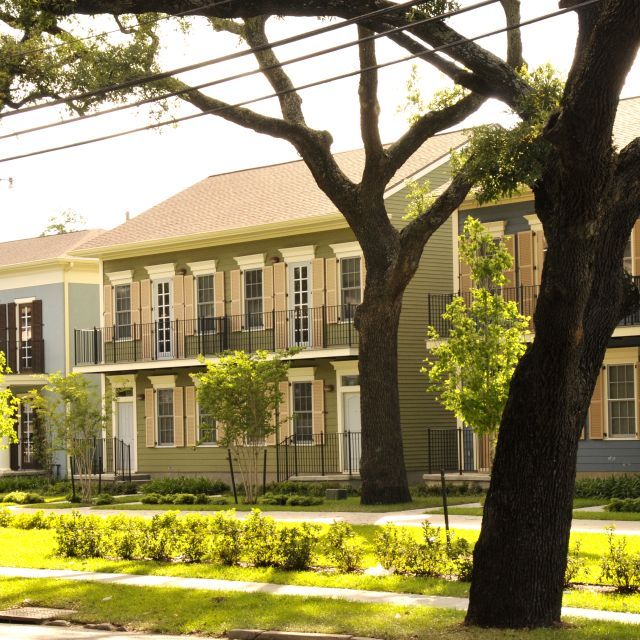After more than five months of continuing resolutions, Congress has passed its first tranche of spending bills for Fiscal Year 2024 (FY24), which includes funding for major housing, community development, and homelessness programs. The omnibus package of six bills (also known as a minibus) includes appropriations bills for Transportation, Housing and Urban Development, and Related Agencies (THUD) and the Agriculture, Rural Development, Food and Drug Administration, and Related Agencies (Agriculture-FDA).
Due to the bipartisan debt limit legislation, congressional appropriators were operating under strict budget caps, which affected the amount they provided for non-defense discretionary programs. Congress proposed an FY24 budget of $70.7 billion for HUD, $1.8 billion (16%) above the FY23 enacted budget. Congressional appropriators included $8 billion in emergency designated spending to help navigate the strict caps and to provide needed additional funding due to lower revenue from mortgages and higher renewal costs for rental assistance programs. President Joe Biden signed the package of spending bills just ahead of the deadline set by the most recent continuing resolution bill.
Despite the constraints to the topline spending numbers for each bill, Enterprise is encouraged that Congress provided a bipartisan proposal that makes minimal cuts and level funding/increases for many of Enterprise's Policy Priorities. Specifically, we are happy to see several key programs receive increases, including the Native American Housing Block Grant, which received a significant 32% increase, and the Housing Choice Voucher (HCV) program which received a 7% increase and included funding for 3000 new vouchers for youth aging out of foster care and veterans at risk of or experiencing homelessness.
We were also pleased to see that important programs such as the Community Development Block Grant and the Section 4 Capacity Building Program received level funding. Strict spending levels often means grant programs such as these would be targeted for cuts. However, every proposal, including the House and Senate proposals, maintained funding for these programs. While the HOME Investment Partnerships Program received a 17% cut in the minibus proposal, it was spared from the significant, $1 billion cut proposed in the House and received $1.25 billion.
Here’s where the HUD funding stands compared to last year’s enacted bills:
- $32.4 billion for Tenant-Based Rental Assistance including $6 billion in emergency spending for renewals. This is a $2.1 billion (7%) increase over FY23 enacted. It is expected this amount will cover the cost of all contract renewals, ensuring that no current voucher holder loses rental assistance.
- $16 billion for Project-Based Rental Assistance including $2 billion in emergency spending for renewals, which is $1.1 billion (7%) above FY23 enacted.
- $8.8 billion for Public Housing, a $379 million (4%) increase from FY23 enacted. This total includes $5.48 billion for the operating fund, a $366 million (7%) increase from FY23 enacted. The capital fund received $3.2 billion, level with FY23.
- $6.7 billion for the Community Development Fund (CDF), $322 million (5%) above FY23 enacted. Of this, $3.3 billion is allocated for the Community Development Block Grant (CDBG) program, equal to FY23 enacted. $3.3 billion in CDF is for earmarks and congressionally directed spending items, which is an increase of $307 million (10%) compared to the FY23 enacted. Also, $100 million was proposed for the Yes in My Backyard Grant (YIMBY) grant program, which is $15 million (18%) above FY23 enacted.
- $4.05 billion for Homeless Assistance Grants, $418 million (12%) above FY23 enacted.
- $1.25 billion for HOME, $250 million (11%) below FY23. This avoids the majority of the cuts proposed in the House, by providing $700 million (150%) over the House proposal.
- $1.34 billion for Native American Programs, a $324 million increase (32%) above FY23 enacted. This includes $1.11 billion for the Native American Housing Block Grant (formula), a $324 million (41%) increase above FY23 enacted.
- $913 million for Section 202 Housing for the Elderly, $162 million (15%) below FY23 enacted.
- $208 million for Section 811 Housing for People with Disabilities, a $152 million (42%) decrease from FY23 enacted.
- $140.5 million for Family Self-Sufficiency (FSS), a $15.5 million (12%) increase compared to FY23.
- $42 million for the Section 4 Capacity Building program, level with FY23. This includes a $1 million set-aside for native populations, which was also included in FY23.
- $10 million for the Preservation and Reinvestment Initiative for Community Enhancement (PRICE) Program, a competitive grant program for housing residents and communities to preserve and revitalize manufactured housing and eligible manufactured housing communities. FY23 was the first time the program was funded at $225 million.
USDA
For Agriculture-FDA, Congress proposed $26.23 billion for agencies under its jurisdiction. Many of the rural housing programs received funding cuts in the minibus proposal. Rural rental assistance was protected, and Congress approved a pilot to allow mortgage decoupling, which was a key policy priority for Enterprise this year.
An overview of the USDA funding:
- $1.608 billion for Section 521 Rental Assistance, $120 million (8%) above FY23 enacted. The amount provided in the proposal is estimated to fully fund the program.
- $880 million for the Section 502 Single Family Housing Guaranteed Loan Program, $370 million (32%) below FY23. This amount includes $5 million for the 502 Direct Tribal Relending Pilot, $2.5 million below last year.
- $400 million for the USDA Section 538 guaranteed loans to preserve and rehabilitate USDA rental housing, level with FY23 enacted.
- $60 million for the Section 515 Rural Rental Housing program, $10 million (14%) below FY23.
- $34 million for the Multi-family Housing Preservation and Revitalization Program, $2 million (6%) below FY23, and $1 million (3%) above the House proposal.
- The FY24 minibus also includes language to provide USDA authority to allow mortgage decoupling, beginning with a pilot for 1,000 units. This was a priority for Enterprise and a wide coalition of rural housing owners and advocates.
Congress is still expected to release its second tranche of spending bills, which includes funding for the Treasury through the Financial Services and General Government (FSGG) spending bill. The President’s Budget Request is expected to be released on March 11, and Enterprise will publish a summary blog on the administration’s budget proposal for housing, community development, and homelessness programs.
A full breakdown of the affordable housing and community development spending levels can be found in our Fiscal Year 2024 Budget Request and Appropriations Chart. Enterprise will continue our work in the 118th Congress, engaging with lawmakers, the Administration, and our partners to advocate for these important programs.
To stay up to date on FY24 and as the FY25 Appropriations process gets underway, subscribe to our daily Today in Housing newsletter and bi-weekly Capitol Express newsletter.


